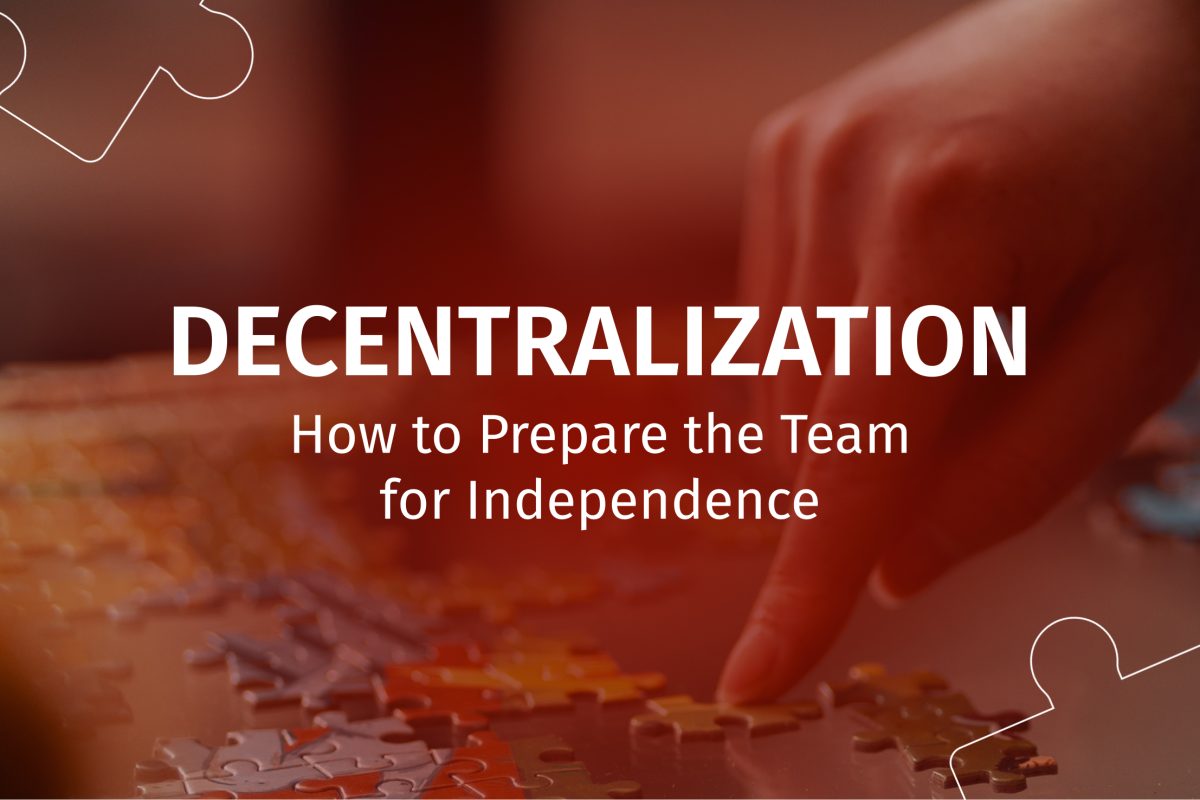
Safe Decentralization of Business for Leaders and Subordinates
Centralization has become one of the many issues that Ukrainian businesses have faced in recent years. Initially, it wasn’t harmful and had delivered results for centuries, as it’s simply the traditional hierarchical system of running a business, where final decisions are made by the leader.
Why has it stopped working? It’s quite clear — to overcome challenges and grow, it’s important to trust and have people to rely on, both on a personal level and within the organization.
In fact, the need for decentralization doesn’t only arise during tough times. The main reason for business stagnation and even degradation, even in relatively stable periods, is the focus of leadership on operational decisions rather than strategic and visionary ones. As a result, companies may have well-functioning middle management (C-level), but lack a true leader.
At the same time, many Ukrainian businesses had to unexpectedly embrace decentralization due to the pandemic and the war. For various reasons, they lost their leaders, either directly or indirectly. For some teams, this was critical; others are currently adapting to new leadership, while for many, this will become a plan of action for tomorrow.
Not every owner or founder is ready for this topic today, because, aside from the technical steps we’ll outline, it also requires personal willpower and the virtues of a leader by character, not just by title. For many, sharing responsibility is challenging, even though it leads to progress and growth. However, if you understand why this process is effective and are ready for change, we invite you to keep reading.
The first step in preparing for decentralization is analyzing the team to whom you are ready to delegate decision-making: Are they sufficiently motivated? Do they have the necessary knowledge and skills? Are there individuals with more pronounced leadership potential? These are the people who will take on partial responsibility for the company. According to John C. Maxwell, the highest-level leader is capable of creating space for colleagues around them, as it’s in their interest to foster continuous growth. Therefore, you need to determine whether you and your team are ready for the roles to change.
Next, you need to think about the order in which to delegate tasks — start with tasks where the cost of error is low and the speed of adaptation is high. At the moment of defining these assignments, it’s important to develop a risk management plan — it’s better to let the team learn from their mistakes rather than take back all the decision-making yourself.
Based on the results of this process, you need to build a new system. It should not be entirely horizontal because, in most structures, position reflects the level of knowledge, experience, and skills. Your task is to determine who has the necessary competencies, which tasks to delegate, and when to do so.
Unfortunately, when we talk about the right time for changes today, it’s not about ideal circumstances where all processes are fine-tuned and reforms can be introduced step by step. In practice, while Ukrainian businesses have gradually shifted towards long-term planning, they still face daily risks to life and operations. Keeping this in mind, we recommend starting decentralization as soon as possible because it takes time for everything to start functioning properly and for the team to stabilize in the new format.
It’s also crucial how the leader presents these changes — an environmentally friendly approach to delegation requires absolute transparency in communication. You should immediately explain why responsibilities are shifting and how this will positively impact the achievement of the company’s goals and those of each individual employee. Clarify that you will remain close by, ready to guide and support as a leader, and outline points A and B as a path the team will take and the expected outcomes.
Decentralization is a process best approached in times of relative stability because, when forced, it requires significantly more effort and leads to a greater number of mistakes.
We are confident that as leaders, you are invested in the well-being of your subordinates and the company or organization as a whole. If you would like to explore this plan and other management tools in more detail, we invite you to read other articles on our website.